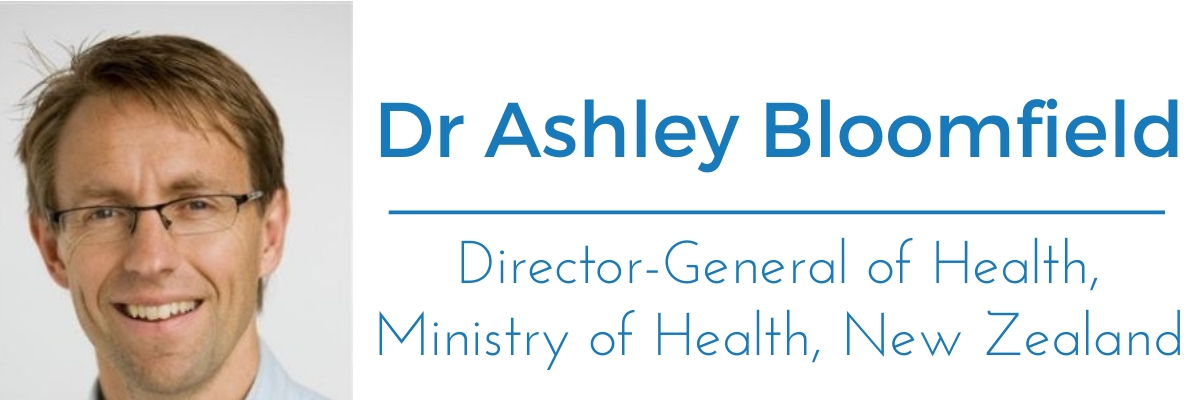Dr Ashley Bloomfield Shares First Year Learnings
10 Nov 2019

HardyGroup was privileged to lead the search for Director General Health New Zealand on behalf of the State Services Commission in which Dr Ashley Bloomfield was appointed to the role. I spoke with Dr Bloomfield about his first year and what his plans are for the future.
Now in to the second year of your role as Director General Health New Zealand what have been your reflections and learnings to date?
Well there are plenty of learnings! Coming into the role, I focused on three areas. First, the organisation itself – ensuring we have the leaders, capability, capacity and – most importantly – culture to deliver on our leadership responsibilities. Second, our ability to contribute across the public sector, especially important given the Government’s broad wellbeing agenda. And third, our relationships with the wider health and disability sector – and the need to ensure those are strong and enduring as a platform for providing leadership across the system.
Two brief reflections. First – and this was the same in my previous role as a DHB Chief Executive – the importance of doing the basics well. In particular, clear and consistent communication both inside and outside the organisation, and making decisions! People don’t generally deal with uncertainty very well, although some are able to adapt better than others. Whether it’s change inside the organisation or decisions that impact on the wider system, reducing uncertainty for people is hugely important. And second, I’ve been struck by the level of support for the Ministry to succeed in its leadership role – many working in the sector recognise that a well-functioning Ministry is essential to a well-functioning sector.
A number of Government mandated reviews and inquiries are underway including the Mental Health and Addiction Inquiry. With the release of the final report, He Ara Oranga, what longer term changes are signalled for the country and what are some of the first cabs off the rank?
The Inquiry report He Ara Organga provided the Government with a very ’rounded’ set of recommendations and proposals to improve mental health and wellbeing in Aotearoa/New Zealand. There are 40 recommendations and the vast majority of these were accepted by the Government – backed up with a substantial investment in the May 2019 Budget. Longer term, the Review (and response) signal a need to move to a much wider societal response to mental wellbeing – including its promotion and the range of services for people when they have problems.
The centrepiece of the Government’s investment is the development of services in primary and community settings to support people with mental distress or mild to moderate illness. The vision here is for a highly accessible range of services at general practice, Maori and Pacific providers, online and through mental health NGOs. This is not only great news for people who need to access services, it will provide excellent support for primary care to be able to respond more immediately to people who need support.
The Minister of Health, Dr David Clark, announced a wide-ranging review designed to future-proof New Zealand’s health and disability system and services. The report and final recommendations is due back to Government March 2020. What are some of the common themes coming through that people are concerned about or alternatively see as opportunities?
The Review panel published it’s interim report in early September and it brings together in one place a wealth of information on the ‘current state’ and some of the drivers for where we find ourselves now. There were three areas in the interim report that clearly need attention, regardless of what the final report might say: leadership and governance (in particular accountability) across the system; workforce; and data and digital. It was satisfying to see that the issues raised in these three areas are ones we are not only aware of but are moving on. We’re working closely with the Review Panel to ensure that the actions we have or will shortly have underway don’t pre-empt or cut across the Panel’s final findings and recommendations.
After the report is presented back to Government what happens from there?
The Government will want to carefully consider the recommendations and the Ministry of Health, along with others I expect, will be asked to provide advice on them. We’re gearing up for what is likely to be a lot of activity required in a short space of time, especially as there is a general election scheduled for later in 2020.
In his latest book Human – Solving the Global Workforce Crisis in Healthcare, Dr Mark Britnell Global Chair and Senior Partner for KPMG International states that by 2030 the world will be short of approximately 15 million health workers. How is New Zealand tracking from a workforce retention, development and growth perspective?
Well we are just as challenged as other jurisdictions – possibly more so as we run a very good first world health system on a relatively small GDP (being a small country) and lower per capita health spending than other high income countries. The key point here is that workforce ‘shortages’ are predicated on us continuing – more or less – to do things as we currently do. That’s the challenge and opportunity – and there’s no bigger opportunity than enabling and involving citizens more in delivering health care for themselves and their families. The role of data and digital here is critical – and we’re not talking about the ‘flashy’ new things like wearables, etc – just having really good data and information reliably available to support decisions by people and clinicians.
As we near the close of 2019 what’s on your radar for 2020?
Everything there was this year, as well as a major report on the future health and disability system and a general election! Which reinforces the importance of doing the basics well and ensuring we are ‘well dressed’ to deliver our critical leadership role for the system.

